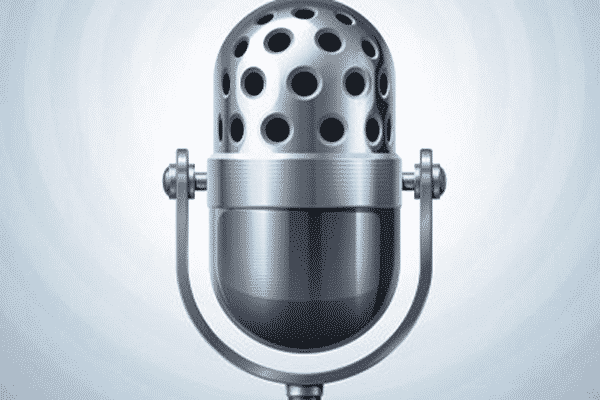Well, look, we have seen the report that the ABC is referring to, and I understand that they will be making it public later today. And it shows that not only are these procedures very expensive, but they’re being performed on some people for whom they’re seriously not a good idea – like people who are very elderly, frail, and where surgery has no chance of reducing their pain or disability. And furthermore, in association with those procedures, there has been massive overuse of medical devices which are overpriced, and some fraudulent behaviour of some of the clinicians concerned.
Interviews and Transcripts
Dr Rachel David discusses patients being pressured to use their private health insurance in public hospitals on Radio 5AA
But what I think is at issue here is the behaviour of the clerks or the frontline workers that are going around talking to patients and getting them to sign documents, which, as you mentioned, the lady yesterday said that she didn’t fully understand. And that’s a problem for a couple of reasons. If there’s any coercion at all in that interaction, then that’s not appropriate. Sick people should not be coerced into signing anything under duress. And that includes- some people that we’ve seen have actually had private claims made against their name when they’re a public hospital when they’ve been completely incapacitated.
Dr Rachel David discusses the impact of inflation on hospitals and premiums on ABC Radio Brisbane
Well, look, this is part of the issue that the Federal Government and the health funds consider during the premium round process. So the private hospitals were invited to make submissions into that process about their own costs and the pressures that they were under during the pandemic, which we acknowledge. We acknowledge that the pandemic was tough on the private hospital sector. And then after the pandemic, they’ve had to contend with the inflationary pressures on wages, recruitment, power and food. And so that is acknowledged. There is a robust process by which health funds contract with hospitals to ensure that patients don’t have gaps on their hospitals
Dr Rachel David discussed rising out of pocket costs and premiums with ABC Gold Coast Morning Show
So look, it has been very thoroughly considered, and the public interest has been taken into account and including the cost of living crisis. But what- we are treading a bit of a fine line because a lot of the providers, so the hospitals and the medical practices that health insurance pays for, they’ve been hard hit by inflation as well. So a hospital has to pay for greatly increased costs of recruitment, power and food, and we have to be able to meet those costs to ensure that we can continue to offer quality services in the private sector. So that’s why premiums do need to go up by a bit this year.
Dr Rachel David discusses health inflation and premiums on ABC Radio Canberra
The premium setting process that we undertake with the Federal Government is a very highly controlled process. There’s more than one regulator involved. So there’s APRA, the prudential regulator that goes through the figures with a fine tooth comb to ensure the funds can meet all their obligations under the law; and then the Department of Health that, as a regulator, also goes through the same process to ensure that the funds are behaving appropriately in terms of the health sector.
Dr Rachel David spoke with ABC Radio Perth about PHI premium increases
One of the things we’re grappling with, however is, as the Minister correctly identified, the cost of hospital care is going up. So not only are the number of procedures going up that we need to fund, the cost of those procedures is increasing and that’s because of inflation in the areas of recruitment, power and food that’s impacting hospitals. And so, fortunately, as a result of the process that we’ve been through we’ve been able to contain the cost of health insurance significantly below inflation and also below some of the really stratospheric rises we’ve seen in some other insurance types.
Dr Rachel David spoke with Radio 6PR on price gouging and rising out of pocket fees
There’s calls to name and shame the doctors who are gouging their patients. Specialist doctors’ fees should be published on the Government’s Medical Costs Finder website according to Private Healthcare Australia. As the ACCC has found that out of pocket fees charged by specialists – such as surgeons and cardiologists – have increased by more than 50 per cent over the last decade.
Dr Rachel David spoke with 2GB on the 40th anniversary of Medicare
But I think the system has evolved so that private health insurance and Medicare coexist actually as part of the same system, because what they’re doing is- what private health is doing at the moment is it’s funding the lion’s share of planned or elective surgery. That means that the public hospitals don’t have to put those people on waiting lists.
Dr Rachel David spoke with ABC Radio Brisbane about out-of-pocket costs
But when it comes to doctors, under Australian law, doctors can set their own fees and charge whatever they like, and health funds will pay a proportion of that to try and eliminate as much of the gap as possible. But what they can’t do is chase ever increasing or very rapidly increasing fees, because that means that it will put upward pressure on premiums for everyone.
Ben Harris joined Seven News First at 4pm to discuss out-of-pocket costs
There are a number of things around transparency. Doctors actually telling patients what they’re going to be up for is absolutely vital. The government has a website, Medical Cost Finder, where you can actually look up the common procedures to see what sort of out of pocket costs you’d expect


